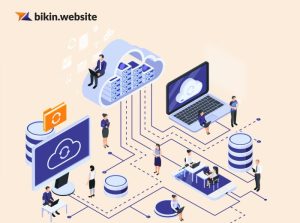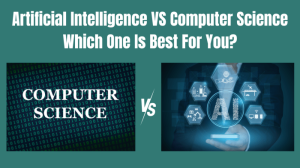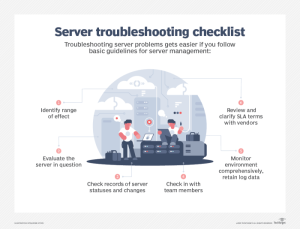
Embark on a journey through the realm of top computer systems tailored for businesses, where efficiency and security reign supreme.
From the importance of mobile computing to the latest gadgets revolutionizing business operations, discover how technology shapes the modern business landscape.
Mobile Computing
In today’s fast-paced business environment, mobile computing plays a crucial role in ensuring efficiency and productivity. With the ability to work from anywhere at any time, businesses can stay connected and responsive to their customers’ needs.
Examples of Enhanced Efficiency
- Employees can access important files and documents on-the-go, increasing collaboration and decision-making speed.
- Mobile payment solutions streamline transactions and improve customer service by providing convenient payment options.
- Field service workers can update job statuses in real-time, reducing delays and improving overall customer satisfaction.
Challenges in Implementation
- Security concerns arise with the increased use of mobile devices, requiring robust measures to protect sensitive data.
- Compatibility issues may arise when integrating mobile solutions with existing systems, leading to potential disruptions in operations.
- Managing multiple devices and applications can be complex and costly, requiring proper oversight and maintenance.
Comparison of Devices
| Device | Advantages | Disadvantages |
|---|---|---|
| Smartphones | Portability and versatility | Small screen size for intensive tasks |
| Tablets | Larger screen for better visibility | Less powerful processing compared to laptops |
| Laptops | Full functionality for complex tasks | Less portable compared to smartphones and tablets |
Computer Security
In today’s digital age, robust cybersecurity measures are crucial for businesses to protect their sensitive data and maintain the trust of their customers. A single security breach can have devastating consequences, including financial loss, damage to reputation, and legal repercussions.
Common Cybersecurity Threats
- Malware: Malicious software designed to infiltrate computer systems and steal sensitive information.
- Phishing: Scammers use fraudulent emails or websites to trick individuals into providing sensitive information.
- Ransomware: Software that encrypts a user’s data and demands payment for its release.
- Insider Threats: Employees or contractors who misuse their access to company systems for malicious purposes.
Strategies for Securing Business Computers and Networks
- Implementing a robust firewall to monitor and control incoming and outgoing network traffic.
- Regularly updating software and operating systems to patch known vulnerabilities.
- Enforcing strong password policies and implementing multi-factor authentication for added security.
- Conducting regular security training for employees to raise awareness of cyber threats and best practices.
Role of Encryption in Data Security
Encryption plays a vital role in safeguarding sensitive data by converting it into a code that can only be deciphered with the correct decryption key. By encrypting data in transit and at rest, businesses can ensure that even if a breach occurs, the stolen data remains unreadable and unusable to unauthorized individuals.
Computer Software

In today’s business landscape, computer software plays a crucial role in streamlining operations, enhancing productivity, and improving overall efficiency. From productivity tools to specialized applications, software solutions are essential for businesses of all sizes.
Essential Software Applications for Business Operations
When it comes to running a successful business, having the right software tools can make all the difference. Essential software applications for business operations include:
- Productivity tools like Microsoft Office Suite, Google Workspace, and Slack, which help teams collaborate, communicate, and manage tasks efficiently.
- Accounting software such as QuickBooks, Xero, and FreshBooks, which streamline financial processes, track expenses, and generate reports.
- CRM systems like Salesforce, HubSpot, and Zoho CRM, which manage customer relationships, track leads, and improve sales performance.
Benefits of Cloud-Based Software Solutions for Businesses
Cloud-based software solutions offer numerous benefits for businesses, including:
- Scalability: Businesses can easily scale their software resources up or down based on their needs without the hassle of hardware upgrades.
- Accessibility: Cloud-based software allows employees to access data and applications from anywhere with an internet connection, promoting remote work flexibility.
- Cost-effectiveness: By eliminating the need for on-premise servers and maintenance, cloud-based software can reduce IT costs and improve overall efficiency.
Custom Software Development for Specific Business Needs
Sometimes, off-the-shelf software solutions may not fully meet the unique requirements of a business. Custom software development offers tailored solutions to address specific business needs, providing:
- Personalization: Custom software can be designed to align with the workflows and processes of a business, increasing efficiency and productivity.
- Scalability: Businesses can easily scale custom software as their operations grow and evolve, ensuring long-term viability and performance.
- Competitive Advantage: By investing in custom software development, businesses can differentiate themselves from competitors and deliver unique value to customers.
Computer Systems
In today’s digital age, having a reliable and efficient computer system is crucial for businesses to operate smoothly and effectively. Let’s delve into the key components of a computer system suitable for businesses and explore the importance of scalability and reliability.
Key Components of Business Computer Systems
- Central Processing Unit (CPU): The brain of the computer that processes instructions and performs calculations.
- Random Access Memory (RAM): Temporary storage for data and programs currently in use by the CPU.
- Storage: Hard drives or solid-state drives for long-term data storage.
- Graphics Processing Unit (GPU): Handles graphical computations and is essential for tasks like video editing or graphic design.
- Networking Components: Ethernet ports, Wi-Fi capabilities, and other networking hardware for connecting to the internet and other devices.
Scalability and Reliability in Business Computer Systems
Scalability refers to the ability of a computer system to handle an increasing workload or growing demands. For businesses, having a scalable system is crucial to adapt to changing needs and ensure continued productivity. Reliability, on the other hand, is essential for minimizing downtime and disruptions in operations, ultimately leading to increased efficiency and customer satisfaction.
Comparison of Operating Systems for Business Use
- Windows: Widely used in businesses for its user-friendly interface and compatibility with a wide range of software.
- macOS: Known for its sleek design and seamless integration with other Apple products, making it popular among creative professionals.
- Linux: Valued for its stability, security, and customization options, making it a preferred choice for tech-savvy users and businesses with specific needs.
Role of Servers in Business Computer Systems
Servers play a crucial role in managing data and applications for businesses by centralizing resources and facilitating collaboration among employees. They store and retrieve data, host websites and applications, and provide security measures to protect sensitive information. In essence, servers act as the backbone of a business’s IT infrastructure, ensuring seamless operations and data management.
Computers Technology
In today’s fast-paced business world, staying current with the latest advancements in computer technology is crucial for maintaining a competitive edge. From artificial intelligence to Internet of Things devices, businesses can leverage these innovations to streamline operations and enhance productivity.Artificial intelligence and machine learning have revolutionized the way businesses operate by automating repetitive tasks, analyzing large datasets for insights, and improving decision-making processes.
These technologies can help businesses optimize workflows, personalize customer experiences, and predict future trends with greater accuracy.The Internet of Things (IoT) devices, such as sensors and smart devices, can collect and transmit data in real-time, enabling businesses to monitor and control various aspects of their operations remotely. By connecting these devices to a centralized system, businesses can improve efficiency, reduce downtime, and enhance overall productivity.Virtual reality (VR) and augmented reality (AR) technologies offer businesses innovative ways to train employees, design products, and engage with customers.
For example, VR can simulate realistic training scenarios for employees, while AR can provide interactive experiences for customers, such as trying on virtual products before making a purchase.
Impact of Artificial Intelligence and Machine Learning
- AI and machine learning can automate repetitive tasks, saving time and resources.
- These technologies can analyze large datasets to provide valuable insights for decision-making.
- Businesses can use AI to personalize customer experiences and improve marketing strategies.
Internet of Things (IoT) Devices in Business Operations
- IoT devices can collect real-time data to improve monitoring and control of operations.
- Businesses can use IoT devices to optimize energy consumption and reduce maintenance costs.
- Connecting IoT devices to a centralized system can enhance overall efficiency and productivity.
Leveraging Virtual Reality and Augmented Reality
- VR technology can be used for employee training and simulation of real-world scenarios.
- AR technology can provide interactive experiences for customers, such as virtual product demonstrations.
- Businesses can leverage VR and AR to enhance marketing campaigns and engage with audiences in innovative ways.
Computers Gadgets
In today’s fast-paced business world, utilizing the right gadgets can significantly boost productivity and efficiency. From dual monitors to wireless presenters, there are various tools available to streamline tasks and enhance collaboration within a business setting.
Popular Gadgets for Business Productivity
- Smartphones: With access to emails, calendars, and communication apps, smartphones are essential for staying connected on the go.
- Laptop stands: Ergonomically designed laptop stands can improve posture and reduce strain during long work hours.
- Noise-cancelling headphones: Ideal for blocking out distractions in a busy office environment and staying focused on tasks.
Benefits of Dual Monitors or Docking Stations
- Dual monitors allow for multitasking and increased screen real estate, enabling professionals to work on multiple projects simultaneously.
- Docking stations provide a seamless transition between desktop and mobile workstations, ensuring easy connectivity and efficiency.
Enhancing Presentations with Wireless Presenters and Smart Pens
- Wireless presenters enable presenters to navigate slideshows with ease and interact with the audience without being tied to a computer.
- Smart pens allow for real-time digital note-taking and annotation during presentations, enhancing engagement and interactivity.
Innovative Gadgets for Collaboration and Teamwork
- Collaborative whiteboards: Interactive whiteboards with cloud-sharing capabilities facilitate brainstorming sessions and idea generation among team members.
- Virtual reality headsets: VR headsets can be used for virtual meetings, training simulations, and team-building exercises, promoting a sense of unity and collaboration.
Final Wrap-Up

In conclusion, the world of top computer systems for businesses is a dynamic and ever-evolving landscape, offering endless possibilities for growth and innovation. Stay tuned for more exciting advancements in the tech realm!
Common Queries
What are the common challenges businesses face when implementing mobile computing solutions?
Some common challenges include ensuring data security, managing device compatibility, and providing adequate training for employees.
How can businesses safeguard against common cybersecurity threats?
Businesses can safeguard against threats by implementing robust security measures such as firewalls, antivirus software, regular software updates, and employee cybersecurity training.
What are the benefits of cloud-based software solutions for businesses?
Cloud-based software solutions offer benefits such as scalability, cost-effectiveness, remote access, automatic updates, and enhanced collaboration.
How do different operating systems like Windows, macOS, and Linux compare for business use?
Each operating system has its strengths and weaknesses, with Windows known for its widespread compatibility, macOS for its user-friendly interface, and Linux for its open-source flexibility.
How can businesses leverage virtual reality or augmented reality technology to enhance operations?
Businesses can use VR or AR technology for training simulations, product visualization, virtual meetings, and immersive customer experiences.





